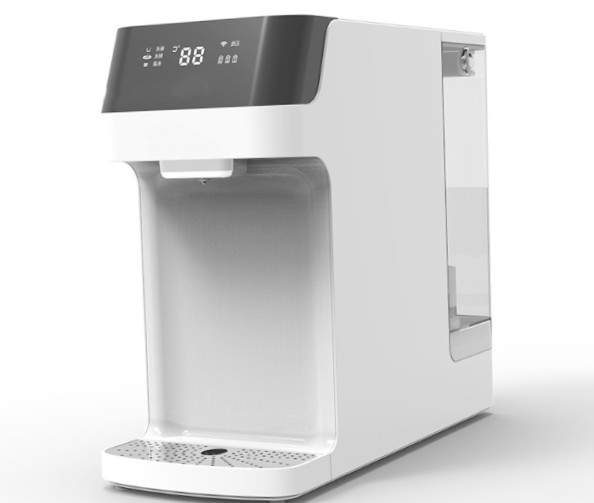
Can Under Sink Reverse Osmosis Filter System and Lifestraw Filter Brine?

Reverse osmosis (RO) is a popular water filtration technology used to remove impurities and contaminants from water. The under sink RO filter system is a compact and efficient device that is commonly used in households and small businesses to produce clean and safe drinking water. On the other hand, the Lifestraw filter is a portable filtration device designed for outdoor activities and emergency situations. Both these devices work by using a semi-permeable membrane to remove contaminants from water, but can they filter brine?
First, let’s understand what brine is?
Brine is a highly concentrated solution of salt in water. It is commonly produced as a byproduct of desalination plants, which use RO technology to remove salt and other impurities from seawater. During the desalination process, the RO membrane separates the salt and other impurities from the water, producing clean and fresh drinking water. However, the concentrated salt solution left behind, known as brine, must be disposed of properly.
Can under sink RO filter systems and Lifestraw filters filter brine?
The short answer is no. RO membranes are designed to remove dissolved solids, organic compounds, and other impurities from water. However, they are not designed to handle highly concentrated salt solutions like brine. When brine is passed through an RO membrane, it can damage the membrane, reducing its lifespan and performance. Therefore, it is not recommended to use an under sink RO filter system or Lifestraw filter to filter brine.
However, there are specialized RO systems that can handle brine, known as brackish water RO systems. These systems are designed specifically to handle highly concentrated salt solutions and are commonly used in industrial applications, such as the production of fresh water from brackish water sources. Brackish water RO systems use thicker membranes and specialized pre-treatment processes to handle brine, making them much more effective at removing salt and other impurities from water.
What the Under Sink Reverse Osmosis Filter System Does?
The system(RO Water Filter products such as: https://www.mspurelife.com/products/t1-under-sink-5-stage-water-filter-system) uses a combination of pre-filters, a semi-permeable membrane, and a post-filter to remove contaminants from the water.
The pre-filters are designed to remove larger particles such as sediment, chlorine, and other organic compounds from the water. These pre-filters can be made of various materials, such as activated carbon or sediment filters, and are typically replaced every six months to a year.
The semi-permeable membrane is the heart of the RO system. It is designed to remove dissolved solids, such as minerals, salts, and metals, from the water. The membrane has very small pores that allow water molecules to pass through but block larger particles, such as contaminants and impurities. As the water passes through the membrane, the impurities and contaminants are trapped and flushed away, leaving clean and safe drinking water.
The post-filter is the final stage of the filtration process. It removes any remaining particles and improves the taste and odor of the water. This filter is typically made of activated carbon and needs to be replaced every six months to a year.
The under sink RO filter system is highly effective at removing a wide range of impurities and contaminants from water, including bacteria, viruses, and chemicals. It can also remove minerals such as calcium and magnesium, which can cause hard water and damage appliances over time. The end result is clean, fresh, and safe drinking water that is free from impurities and contaminants.
In conclusion, under sink RO filter systems and Lifestraw filters are not suitable for filtering brine. They are designed to remove impurities and contaminants from water, but not highly concentrated salt solutions like brine. If you need to remove salt from water, it is best to use a specialized brackish water RO system that is designed to handle brine and produce fresh water. There are more home improvement topics you can read.